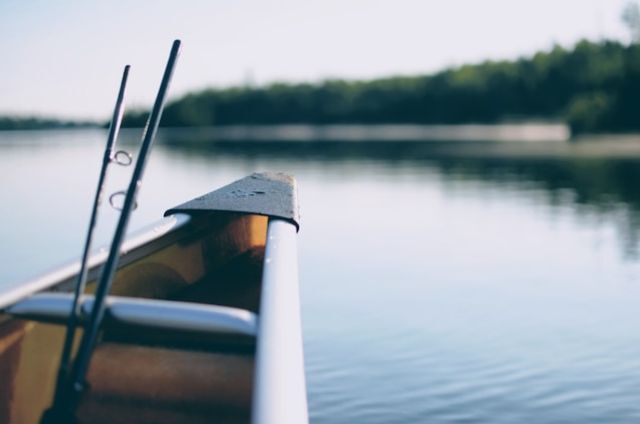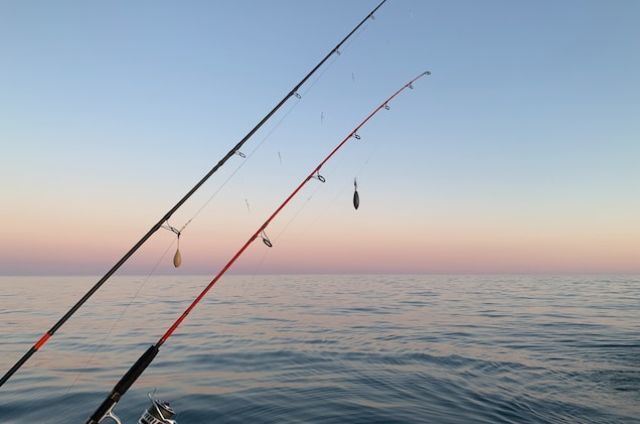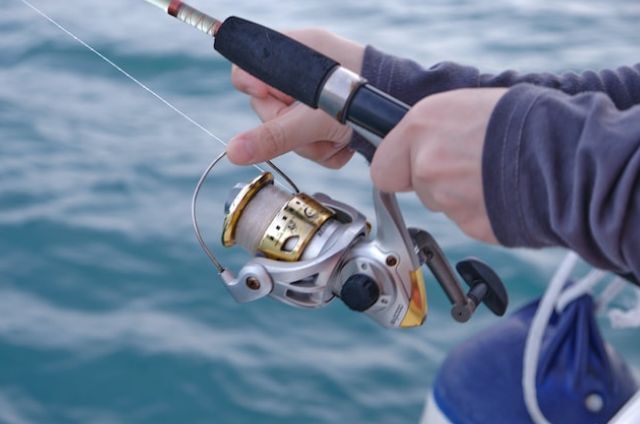
A Guide to Fishing for Beginners: Tips & Tricks for an Easy Catch
Believe it or not, fishing is an activity that anyone, anywhere can enjoy! It's just a case of learning the tricks of the trade, so that time and again you come home having enjoyed a successful, abundant catch. And, with August being National Fishing Month and the summer season normally consisting of long, warm sunny days (we might be lucky with the weather yet!), then what better time to fine-tune your fishing skills, or even pick up a rod for the first time? In and of itself, fishing is a leisurely activity that provides a chance to feel at one with nature and to spend a day outdoors. It could lead you to visit some idyllic spots and it's sure to bring you some serenity and peace of mind that you might not even realise you needed! In addition to these well-being benefits, it's also a great way to put a hearty and nutritious meal on the table for little cost! However, we'd be fibbing if we didn't acknowledge that the best thing about fishing is that instant gratification you get when you reel in a catch! Since the fun of fishing primarily comes from something nibbling on the line, we've thrown together a list of fishing tips and tricks to help you bait, cast, and hook with ease...
What do I need to go fishing in the UK for the first time?
To be able to fish in the UK, a fishing license is required, with some exceptions dependent on age. While this may seem awfully official, fear not – you can make your purchase online for a few pounds, and different options are open to you: a day pass (the perfect fishing license for new anglers, simply wanting to try their hand at the sport), an eight-day pass or an annual fishing license. Remember to always keep your license on you when out fishing, as you risk a hefty fine by not having one to hand.
Before planning your fishing trip, it's also important to acquaint yourself with local rules and government regulations. There are certain 'close seasons' when fishing is prohibited in particular parts of the UK and there are often local bylaws in place, to instruct you on things like what type of bait you can use and how many rods you can put into action in one go.


From bream to salmon: the best fish to catch and where to find them
There's a vast array of fish species frolicking about in UK waters. What you catch and what type of fish you target will be influenced by season and location. While early spring is best avoided, with winter species having migrated and summer species yet to swim in, from later spring onwards there's a lot to get excited about. As the weather starts to cheer up and sea temperatures increase, species like mackerel, plaice and garfish begin arriving. Come the onset of summer, warmer seas result in an easier catch for anglers, as fish – such as bass, pollock and shoals of sprats – flock towards shallower waters. There's also extra incentive to angle in summer, as larger and rarer flat fish species such as John Dory, bream and turbot can be caught. To maximise your chances of reeling in one of these, just head south to warmer waters! Come early autumn, anglers can benefit from an overlap of summer and winter species, as winter fish (such as whiting and cod) return before their summer-loving friends move on. The chances of catching cod continue to build well into winter, particularly in northern areas of Britain.
Rather than heading to the shore, you may instead be keen to fish in a river or in enclosed still waters. If you're set on reeling in trout then, just like salmon, you're most likely to find them in clear, cold waters, especially at higher altitudes. Top tip: it's usually during or after a light shower, when there is little wind, that you'll have the best chance of baiting something!
How to start off: what type of fishing is best for UK beginners – coarse, game or sea fishing?
If you're a total newbie to the art of fishing, you may not be aware that there are three different types of angling: coarse fishing, game fishing and sea fishing. The most accessible and the most popular type of angling in the UK is coarse fishing. A beginner-friendly form of fishing, this is carried out in freshwaters – like lakes, rivers, canals and ponds – and targets many different species of fish, generally rouge fish which are undesirable to eat. Unlike other types of angling therefore, coarse fishing is purely focused on the thrill of the catch... Once caught, the fish are returned to the water and live to see another day. The reason why coarse fishing is great for novices is that it often involves the tactics of lure fishing, or pole and whip fishing, both of which are inexpensive to invest in and easy to perform. Poles and whips are a lightweight, carbon-based type of fishing rod that relies upon elastic rather than the traditional reeling technique. Since they enable you to place your bait with more precision, they give you good control over your line which is essential when you're first starting out. Lure fishing, on the other hand and just as its name suggests, uses a lure – a mini piece of rubber that is dragged through the water to mimic a living creature (much like a worm) and peak the interest of nearby fish. It's a simple, fuss-free fishing tactic that yields quick results! While course fishing is ideal for angling amateurs, it's not the only option open to newbies who are discovering the joys of fishing for the first time. Game fishing is another common type of freshwater fishing, but one that has a food focus! Trout and salmon are generally the prey, and rather than being returned to the water, the intent here is that your catch makes its way onto your plate. The third and final type of fishing is sea fishing which, as you'd expect, is carried out in coastal waters. Those who practice this form of fishing are likely to reel in cod, bass and plaice and can choose whether to take their catch home with them or release it back into the wild.
Kit yourself out with the right rod, hooks and fishing gear
It's not totally surprising that, in order to be able to fish, you first need to get your hands on some basic kit. To get going, opt for a basic fishing line conceived for stillwater fishing. Otherwise, choose a 3-8 metre telescopic glass fibre rod, that's more robust and better value than a carbon rod, especially if you intend to fish among rocks or along a riverbank. When it comes to buying hooks to attach to the end of your line, size matters! The bigger the fish you hope to catch, the larger the hook required. Smaller hooks (coming in sizes 24 and 26 for instance) are intended for catching little fish, while larger models (like numbers 14 and 12) are designed to hook a bigger catch. Heavy gauge hooks, destined for the largest specimens, are numbered 10-2. Once you've got these two pieces of equipment down, all that you're missing is some bait to tack onto your hook. A quick heads up: bait comes in many forms, such as worms, maggots, prawns and minnows.
Now we've discussed fishing materials, it's worth touching on clothing! Before deciding on what to wear fishing, it's a good reflex to cast an eye at the weather forecast, so you can dress accordingly. In sunny weather, a cap is a non-negotiable to protect you from UV rays. If there's a bit of a chill in the air, then a padded gilet or bodywarmer is a good call. But, if it's looking a little overcast and there's a risk of a downpour, then a lightweight, waterproof windbreaker is a better bet. It's good to keep in mind that certain hours of the day are best suited to fishing. Freshwater fish tend to eat at dawn or twilight, making this the best moment to head out for a catch. So, since you're potentially looking at angling in the early or later hours of the day, ensure you've got adequate layers to hand to stay warm! If you're still unsure about what clothes are best suited to this recreational activity, then we've got you covered with our mini guide to The Best Clothes for Fishing.


We've covered the basics!
So, there you have it, our beginner-friendly introduction to fishing! From licenses, to essential equipment, to what types of fishing to get involved in and what catch to hope for, you've now heard it all. While basic knowledge is imperative to starting out, a hands-on approach is really the best introduction to fishing. So, get out there and get angling! If you're anything like us, after a catch or two you're sure to get hooked... If, as well as giving fishing a go, you're looking for another water-focused hobby to take up this summer, why not read our guide to Stand Up Paddle Boarding for Beginners.